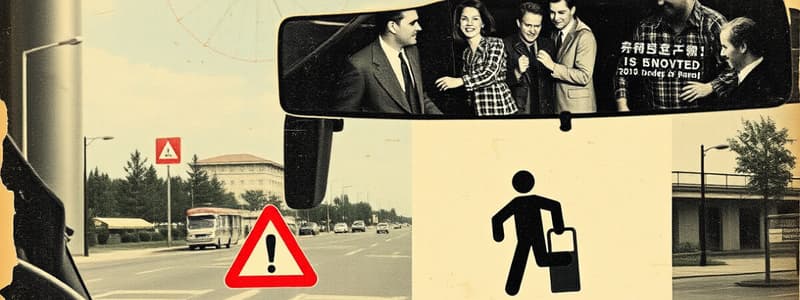Podcast
Questions and Answers
How many feet before making a turn should you signal, at a minimum?
How many feet before making a turn should you signal, at a minimum?
100 ft
In which situation should you use high beams?
In which situation should you use high beams?
When you're alone on a poorly lit road
At a T-intersection, which driver has the right of way?
At a T-intersection, which driver has the right of way?
The driver on the cross street (through road)
Where must cyclists ride in relation to vehicle traffic?
Where must cyclists ride in relation to vehicle traffic?
A school bus is stopped on the opposite side of the road with its lights flashing. In what situation would you NOT be obligated to stop?
A school bus is stopped on the opposite side of the road with its lights flashing. In what situation would you NOT be obligated to stop?
Flashcards are hidden until you start studying
Study Notes
Turning Signals
- Signal at least 100 feet before making a turn to alert other drivers.
High Beam Usage
- Use high beams when driving alone on poorly lit roads to improve visibility.
T-Intersection Right of Way
- At a T-intersection, the right of way is given to the driver on the cross street, also known as the through road.
Cyclist Direction
- Cyclists must ride in the same direction as vehicle traffic to ensure safety and compliance with traffic regulations.
School Bus Stopping Rules
- You are not obligated to stop for a school bus with flashing lights if there is a median separating your lane from the bus's lane, allowing for safe passage.
Studying That Suits You
Use AI to generate personalized quizzes and flashcards to suit your learning preferences.



